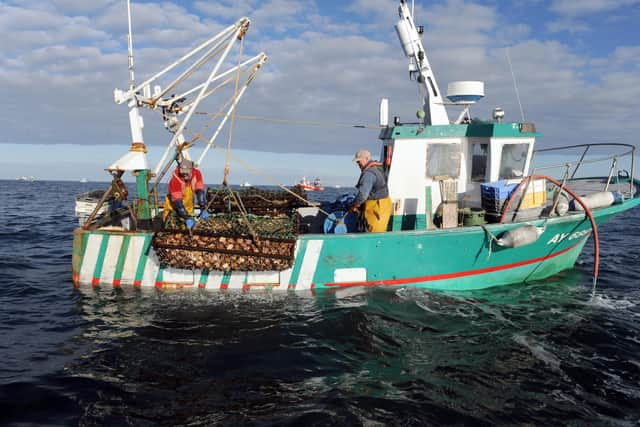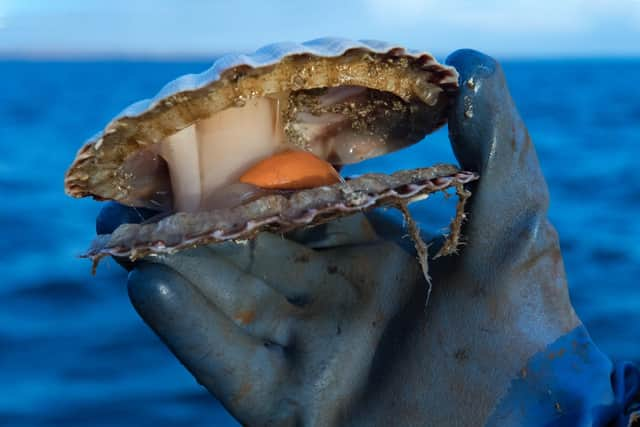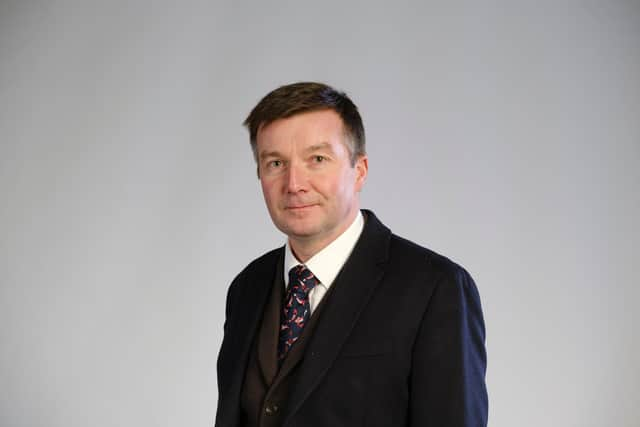Scotland's damaging fishing methods can be sustainable, says leading academic
Michel Kaiser is chief scientist and professor of fisheries conservation at Heriot-Watt University in Edinburgh.
He has recently published a study on the effects of trawling and dredging across the world.
Advertisement
Hide AdAdvertisement
Hide AdAnalysis found a mixed picture – some areas were extensively damaged and fish stocks depleted by intensive fishing while others remained in a healthy condition.
Many conservation and sustainable fisheries organisations, including the Open Seas coalition, believe there should be a ban on bottom-towed gear within three miles of the shoreline to protect important spawning grounds and sensitive habitats.
But Prof Kaiser believes individually tailored, science-based management of fisheries, led by local communities, is key to preserving the marine environment, safeguarding food supplies and protecting livelihoods for the future.
For that, he says fishermen need to have more control over local fishing grounds and better data is needed to provide accurate stock assessments, records of fishing intensity and catch figures.


“When we have good science, an understanding of how much fish are where, habitats affected, data on stocks, we can end up with sustainable fisheries – the area of seabed trawled is reduced and so are the impacts,” he said.
“It’s a win, win. It’s good for fish stocks and the seabed habitat and it’s good for fishing fleets.”
He cites an initiative in Shetland where this kind of management is reaping rewards – an approach that could be rolled out across the world.
Commercial fishing for lobsters, crabs, scallops, queenies, whelks, clams, razors, cockles, mussels and oysters from the tideline up to six miles out from the coast is regulated by the Shetland Shellfish Management Organisation (SSMO).
Advertisement
Hide AdAdvertisement
Hide Ad

This is done through the issue of licences and implementation of measures that ensure recovery of stocks and long-term sustainability.
“They have achieved sustainable multi-species fisheries,” Professor Kaiser said.
“Management takes account of different species and sectors.
“There is spatial zoning, which has helped reduce conflict between fishing methods.


“The measures have helped boost various stocks and improved local marine biodiversity.”
He believes the scheme’s success is mainly due to local fishermen having a sense of ownership.
Simon Collins, executive officer for the Shetland Fishermen’s Association, agrees.
“Communities that depend upon the catching and selling of seafood for their survival understand intuitively the importance of sustainability,” he said.
“Why would any individual or business want permanently to deplete the source of their livelihoods?
Advertisement
Hide AdAdvertisement
Hide Ad“Professor Kaiser’s study underlines what we know about the North Sea and west of Scotland – these are some of the richest yet busiest fishing grounds in the world and still fish stocks have doubled since the beginning of the century and are higher than at any time in the last 40 years.
“If trawling and other forms of fish-catching did half the damage that their critics claim, there would be no fisheries.
“But there are, and then some – more than 50 per cent of the fish caught in the UK come from an area within 100km of Shetland.
“That’s because the fisheries are well managed and sustainable, despite the often ridiculous impositions of government and bureaucracy.”
Prof kaiser, who is appearing at Expo 2020 Dubai, added: “Management techniques must be flexible and collaborative, with input from industry, scientists, governments and communities.”
A message from the Editor:
Thank you for reading this article. We’re more reliant on your support than ever as the shift in consumer habits brought about by coronavirus impacts our advertisers.
If you haven’t already, please consider supporting our trusted, fact-checked journalism by taking out a digital subscription.
Comments
Want to join the conversation? Please or to comment on this article.
